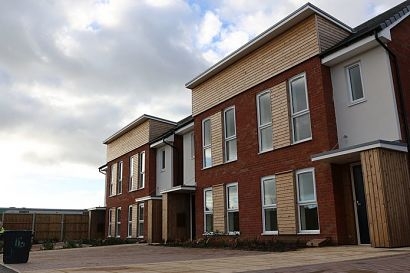
Based on detailed analysis of eight Long Term Renovation Strategies (LTRS) accounting for over 50 percent of the EU population, the report highlights that most LTRS miss the EPBD target of a highly efficient and decarbonised building stock, and none of the strategies are in line the EU’s objective of achieving climate-neutrality by 2050.
This means that the substantial increase in renovation activity to 3 percent annual deep renovation that is required to meet the EU’s 2030 Targets, is unlikely to be achieved.
This fundamental misalignment between Member States’ LTRS and the EU Climate Targets points to a clear need for the European Commission to propose a full revision of the directive. The revision proposal is set for Q4 this year.
None of the eight strategies analysed targets 100 percent decarbonisation of the building stock, nor do they provide sufficient detail over the entire period to 2050 to enable an evaluation of whether the supporting policies and financial arrangements are adequate to meet the goals.
“Our analysis clearly shows a failure to of Member States’ to achieve both the ‘highly energy efficient’ and ‘decarbonised’ part of the EPBD objective” said Oliver Rapf, Executive Director at BPIE. “If we add to that the need to meet new climate targets, it is clear that EPBD needs a full review and not just a targeted amendment.”
According to the analysis, energy efficient buildings seem to be of less strategic importance to Member States than decarbonising the energy supply; most strategies appear to prioritise decarbonising energy supply systems and reducing GHG emissions rather than improving overall efficiency of buildings, thereby reducing energy consumption in this sector.
The report provides clear calls to action for the European Commission as well as Member States. Member States should increase their long-term renovation targets to 100 percent decarbonisation of their building stock, in line with the climate-neutrality objective.
BPIE emphasizes that the European Commission is responsible to ensure this process happens. The Commission should assess all Member States’ long-term renovation strategies not only in accordance with the existing legal requirements of EPBD Article 2a, but also in view of aligning with the climate-neutrality objective by 2050. This would mean a higher decarbonisation objective and stronger emphasis on reducing the energy demand in the buildings sector.
The Commission should also guide Member States accordingly for their LTRS update which should take place earlier than defined in the current Directive. The Renovation Wave strategy should furthermore be adjusted to deliver a 3 percent annual deep renovation rate by 2030 and should fully align the building sector with the climate neutrality objective of 2050.
For additional information:

